Why do women pay more for a short haircut?
- Published
- comments
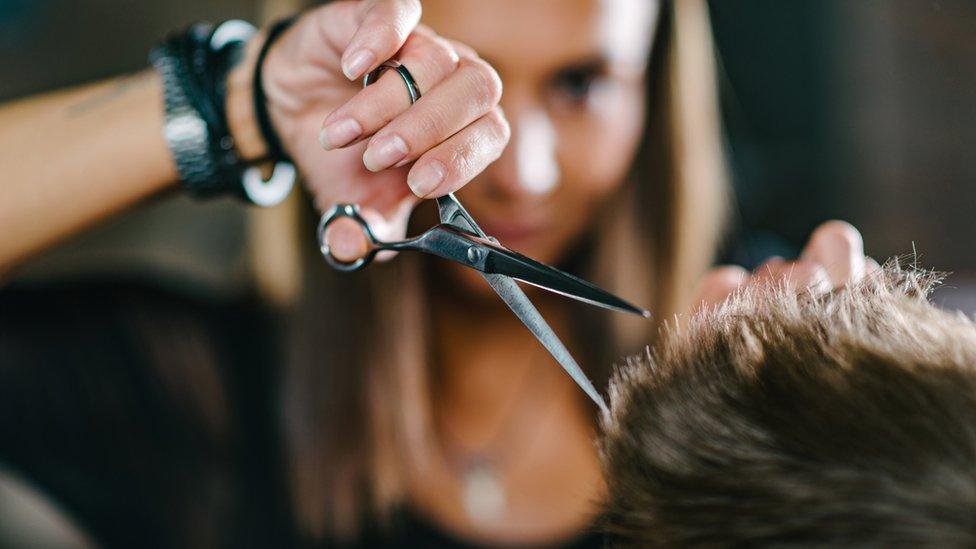
Women's haircuts often cost more than men's, even if they take less time
It's accepted as a fact of life that women pay more for their haircuts than men. But why are women who want a simple, short cut being turned away by barbers - and is this even lawful?
Actor Georgia Frost says she was recently refused service by two consecutive barbers in west London, something she found humiliating.
"I was working on a show at the Lyric Hammersmith and needed just the back and sides doing, partly for the show," she says. "When I asked to have my hair cut, the barber just laughed in my face and said 'no' and made some remark about me being a woman."
She tried again at a near-empty establishment a short distance away only to be told, "we don't do women here".
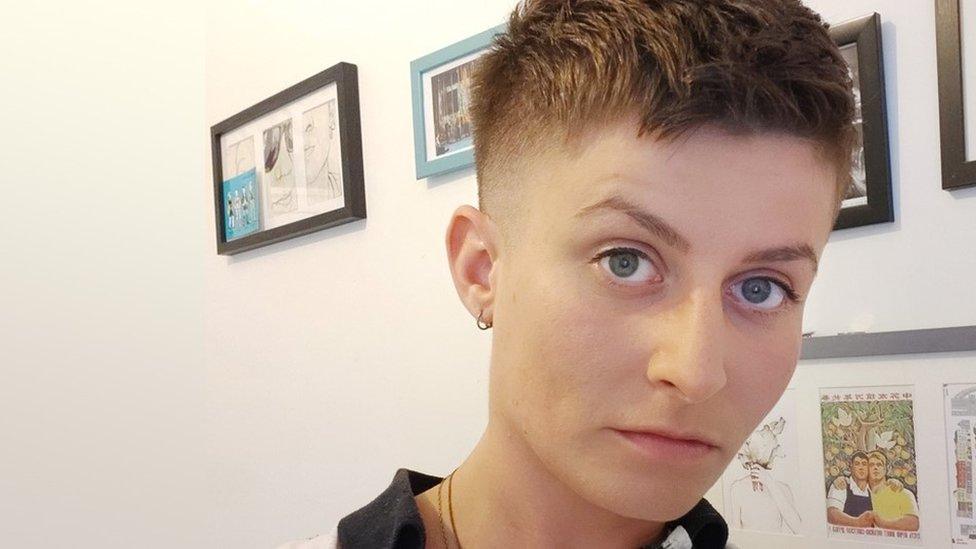
Georgia Frost says she has been refused service by a number of barbers
"I pointed to the client and said, 'I'm literally asking for this haircut that you're doing now' and he just said 'no'. I think for a long time people have seen the barber's as a male sanctuary where they don't have to deal with women. I also think it ties in with what people believe a woman should look like.
"Hair is a huge part of queer culture and lesbian identity as well, so I can't help but feel there is some homophobia wrapped up in all these refusals I've had."
If being denied a haircut based on gender seems clearly discriminatory, there's also the issue that at salons that do offer a unisex service, there's still often a price list that shows one fee for women and a much cheaper one for men.
The National Hair & Beauty Federation (NHBF) points out that women usually have more complicated haircuts than men, and so are charged more.
Chief executive Hilary Hall says: "This is because men tend to have shorter hair, require haircuts which are technically quicker to deliver, do not typically include the range of products used for women and require less time for finishing. For example, a bob may be viewed as a short style, but it is more technically challenging than a short back and sides."
She insists the price difference is not based on gender. "A salon or barber-shop will set its prices taking the following into consideration: the length and texture of the client's hair, the time the service takes, the type of service requested, the products the salon or barber-shop will use, and the skills, training and level of experience required by the stylist or barber."

Trish Greenhalgh says women should pay the same as men if they have the same haircut
While some men do want complex and time-consuming haircuts, the rise of barber-shops - the NHBF says there's been a 64% increase in five years - suggests that a straightforward and cheap haircut is a popular option. However, this is an option that can be closed off to women, as Trish Greenhalgh has experienced.
The University of Oxford academic says for years she was charged £37 by the same salon stylist and "found it irritating" as the short, dry cut, with no shampooing or gelling, took about five minutes.
"Last time I went in, the woman stylist had left but the man said he'd do me as the new lady hadn't started yet," she says. "He charged me £15. Same cut, took the same amount of time and looked exactly the same. I showed him a photo and he copied it."
Prof Greenhalgh says her experience highlights a sexist issue. "For the tomboys among us who really do just want a quick cut, we should be able to ask for an identical service to men. What's currently happening is all women are being charged for the average haircut for a woman."
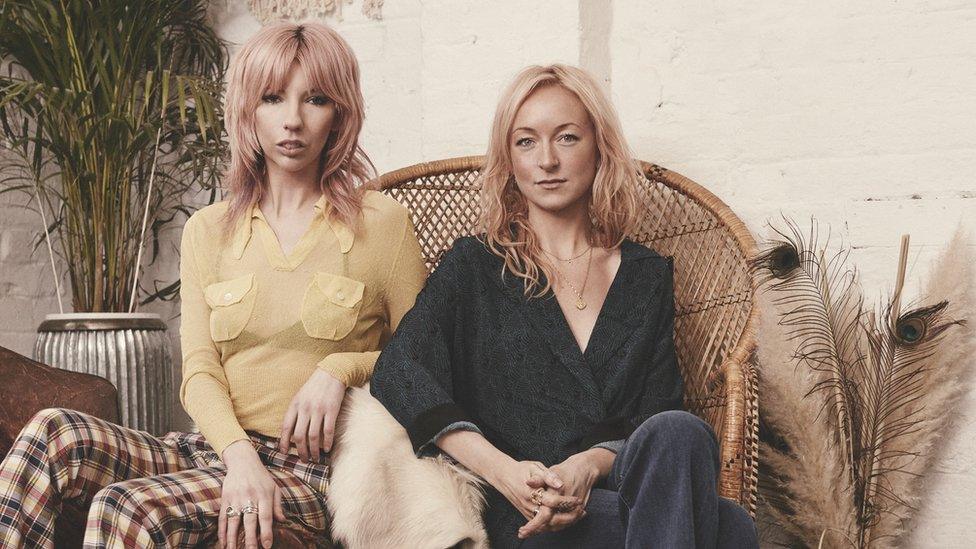
Butchers Salon founders Katie Knox (left) and Susannah Jones say charging men less felt morally wrong
There are salons that do offer gender-neutral pricing, such as Butchers in Hackney, east London.
"Historically, in our industry there has been a gap between the price charged for men and women," co-founder Susannah Jones says. "This was based on the belief that men have short hair, which is quick and simple to style, and women have long hair, which takes more time and skill. This is simply not the case.
"Short haircuts can actually be more technical and often take longer, so time wasn't even a factor when we used to charge less for men - it was purely because they were male, which felt morally wrong."
She says she hopes other salons will "see the value of removing gender from their services" and help "reduce the perception that prices vary according to gender" by being "more transparent to clients that time is a key factor when setting prices".
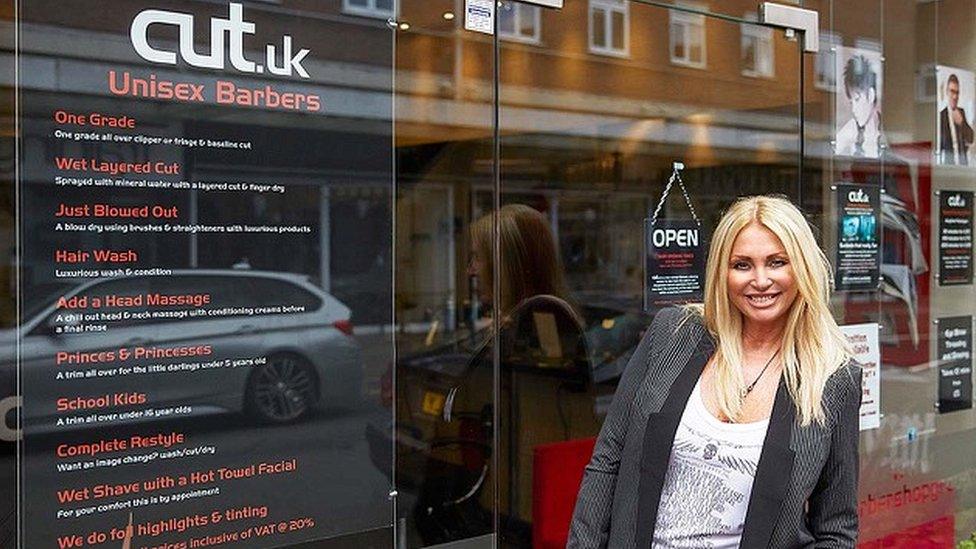
Karen Waldron set up a unisex barber-shop to combat gender issues around hairdressing
Karen Waldron, owner of the Barber Shop Group, set up the unisex chain Cut UK because she spotted a "missing element" - a place for both men and women, a walk-in, no-appointment service, where the prices are the same for both genders. Her stylists are trained to do barber cuts as well as more technical cuts, so all styles are catered for.
"The main issue about the barber-shop and the lovely tradition with it is that it is for men and only meant to be men," she says. "It's only in the last five years that I've allowed women who come in with an absolute man's cut - clippers, neck shaved with a cut-throat, et cetera. We can't be fussy any more now there are so many barber-shops."
But unisex barbers are far from the norm, and many businesses are still refusing to serve women, despite the Equalities Act saying service providers should not discriminate.
Research consultant Devon Magliozzi says she booked with a barber in Edinburgh but received an email 20 minutes before her appointment saying, "we no longer specialise in women's grooming".
"I called the barber-shop. I asked if they could just do a clipper cut on the back and sides but they reiterated that they couldn't do a woman's haircut," she says. "I understand that barbers might not have training to cut long hair, or might charge extra for cuts that take extra time, but gender is an arbitrary way to define services and set prices."
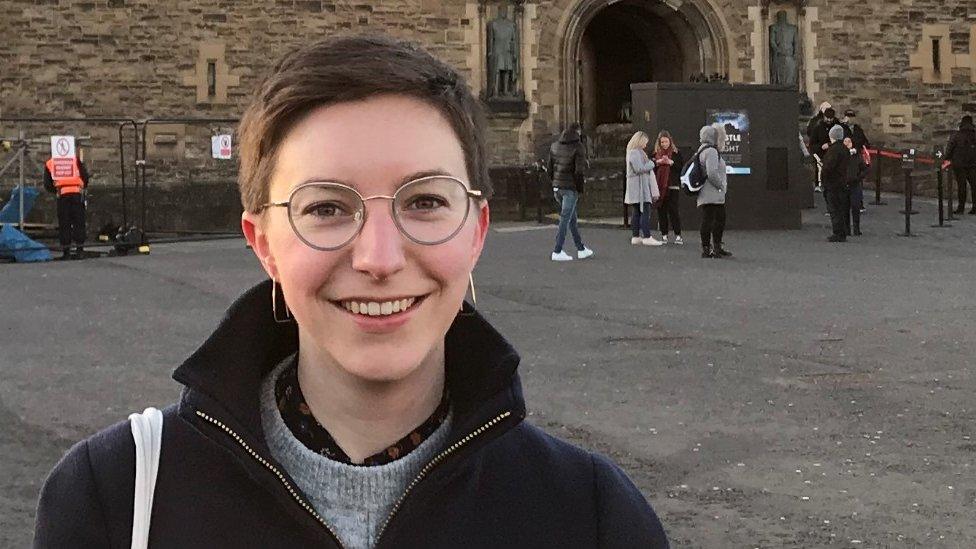
Devon Magliozzi says gender is an arbitrary way to define services and set prices
Equality lawyer Elizabeth McGlone, who has a short haircut herself, says discrimination by hair service providers has never been challenged in the courts.
"Both hairdressers and barbers are covered as a service provider under the Equalities Act so they cannot discriminate on the grounds of gender unless it's a proportionate means of achieving a legitimate aim," she says.
"If you wanted to pursue it, you would have to bring a civil action under the discrimination provision under section 29 at the county court," says Ms McGlone, of London-based Bindmans solicitors.
"I haven't come across any law against gender-based pricing and it can be argued that women's hair is not straightforward or it takes longer. When there is a price difference, there's going to be something about the fact that there's more time spent."
She adds: "I take the choice to go to the barber's because it's cheaper. Men should not be treated favourably because of sex and if you turn a woman away, you are going to make that woman feel totally embarrassed."
Based on her experiences, it's a sentiment Georgia Frost would agree with.
"I like the intricacy and finish clippers and a good barber gives me," she says. "Also, I am not paying £40 at a hairdresser's for short back and sides - it's just ridiculous."
- Published14 April 2016
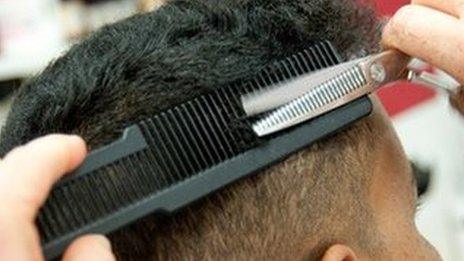
- Published15 August 2019
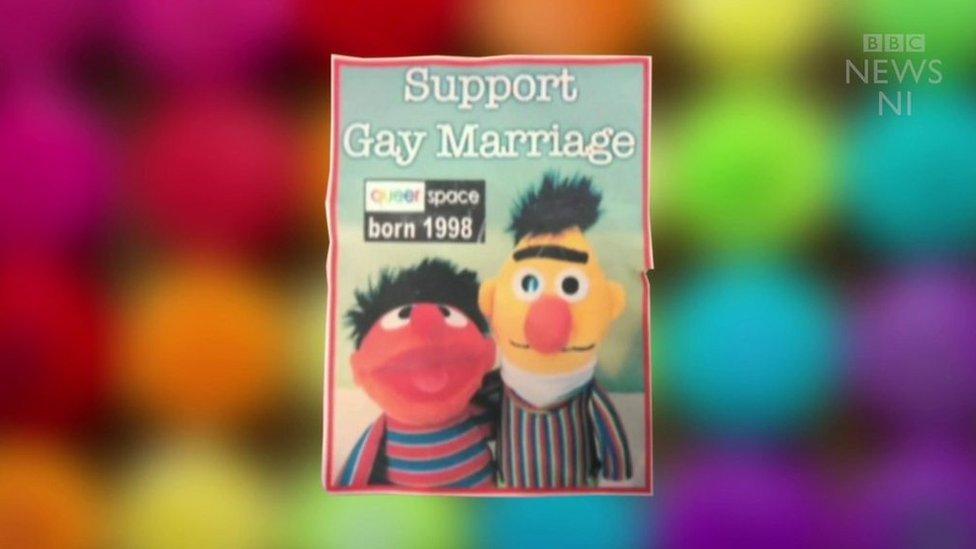
- Published22 March 2019
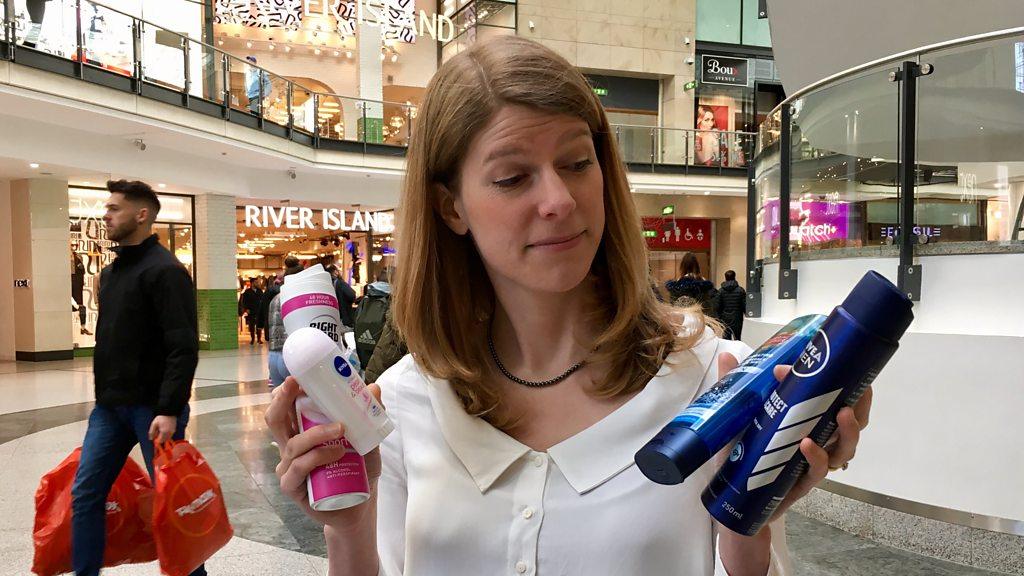
- Published5 March 2019
